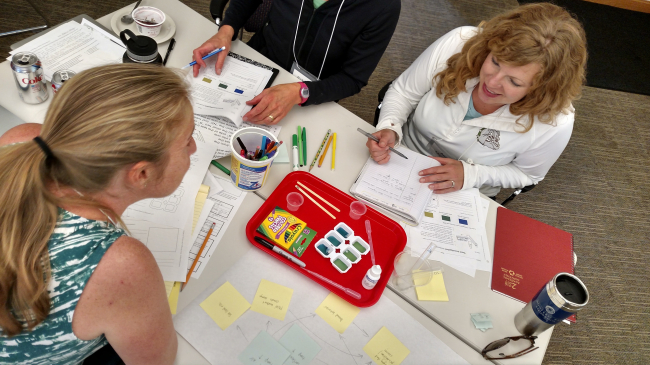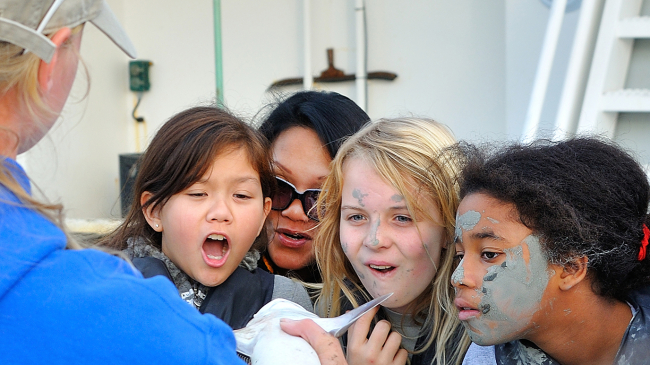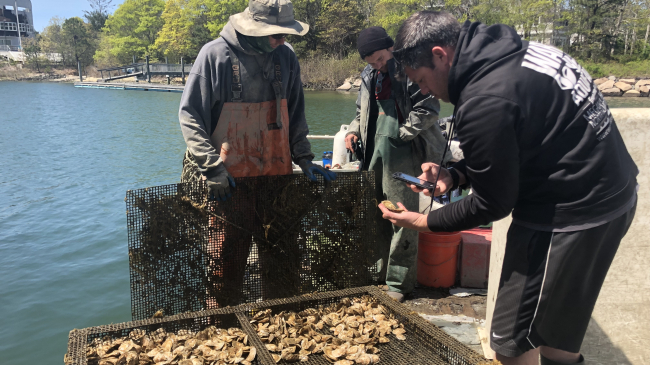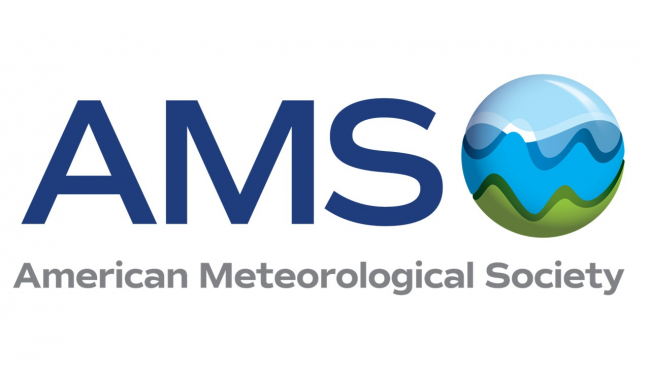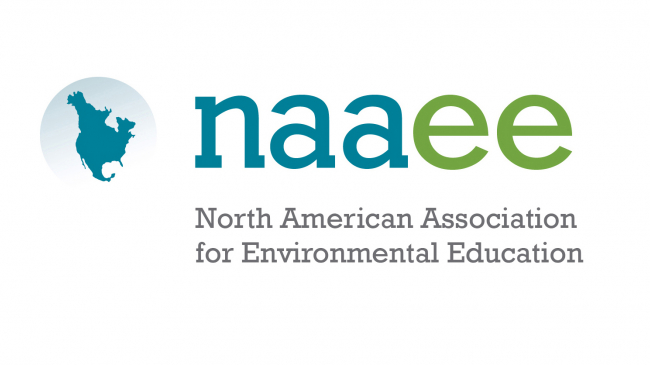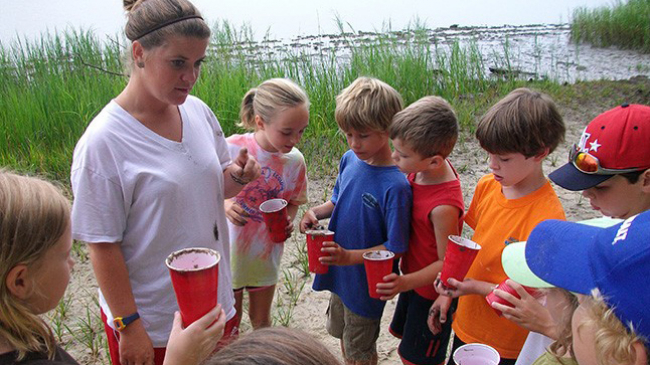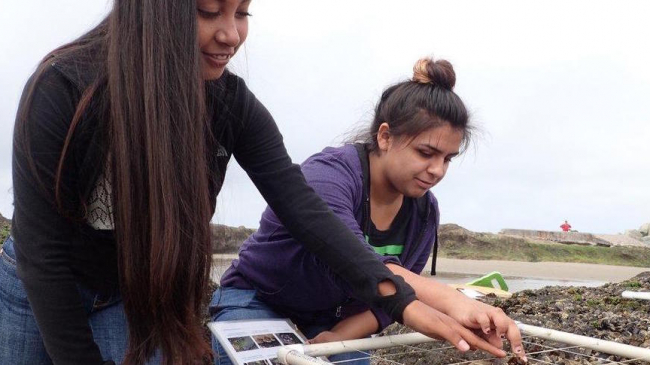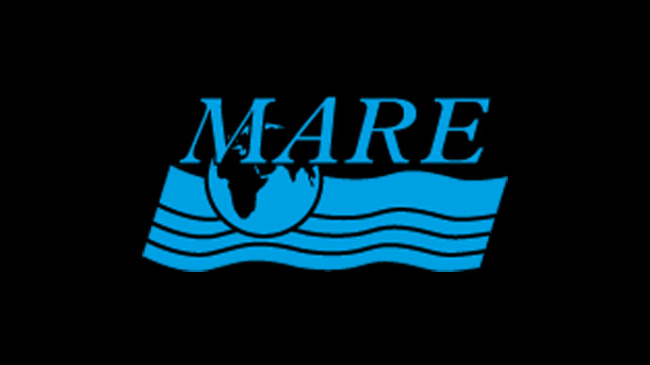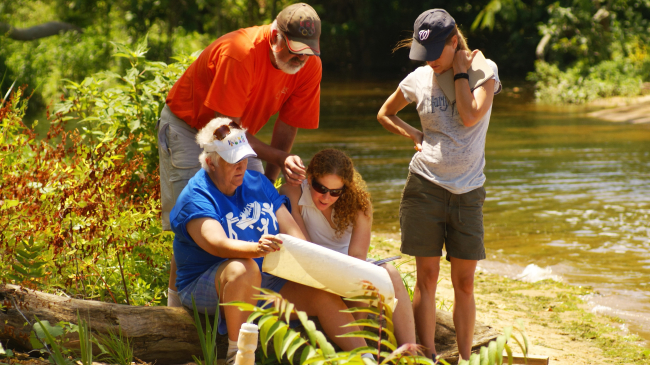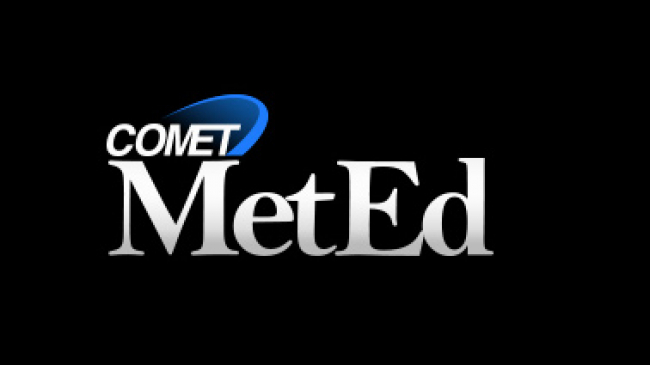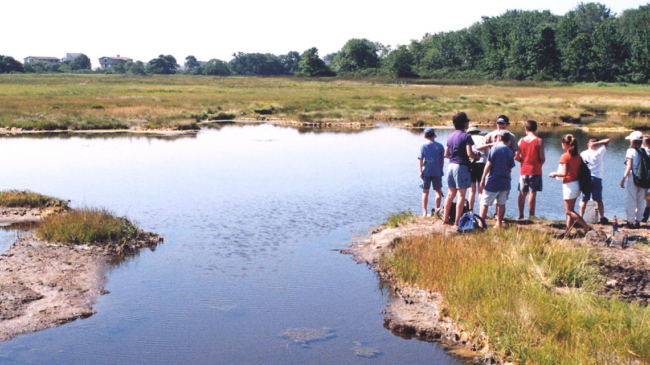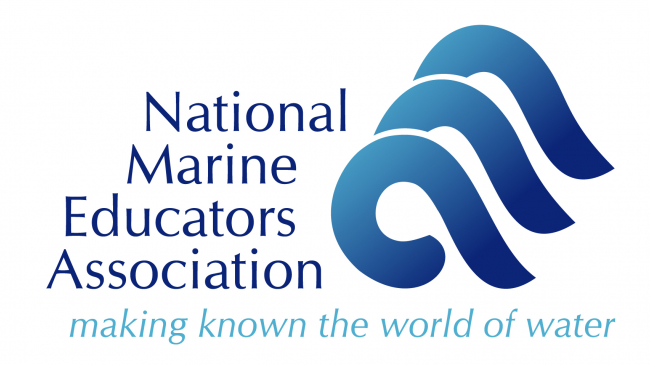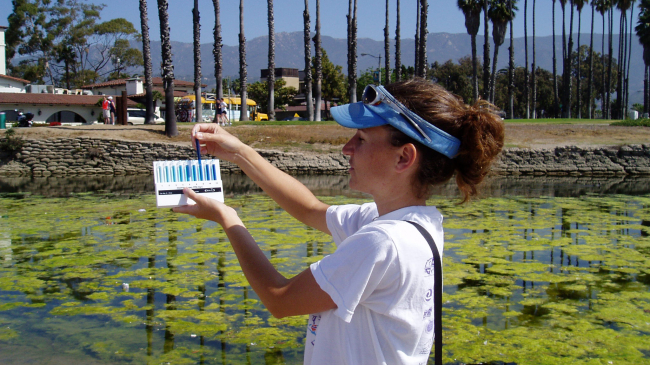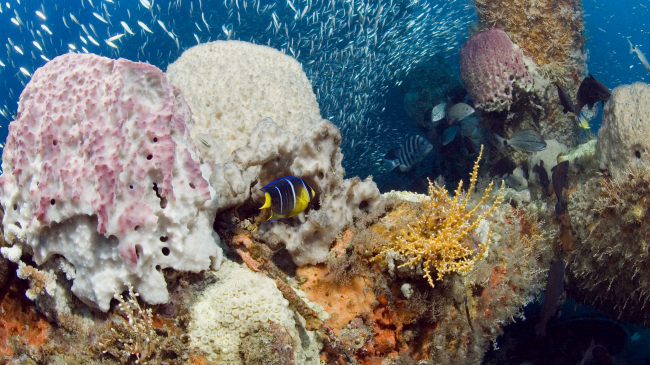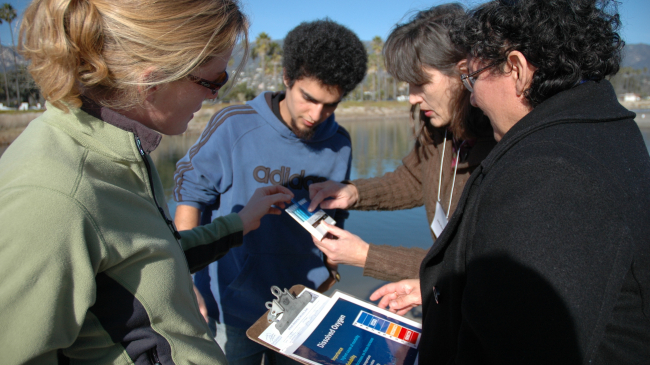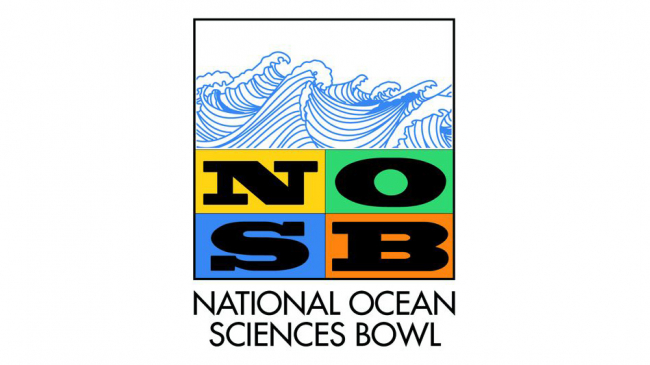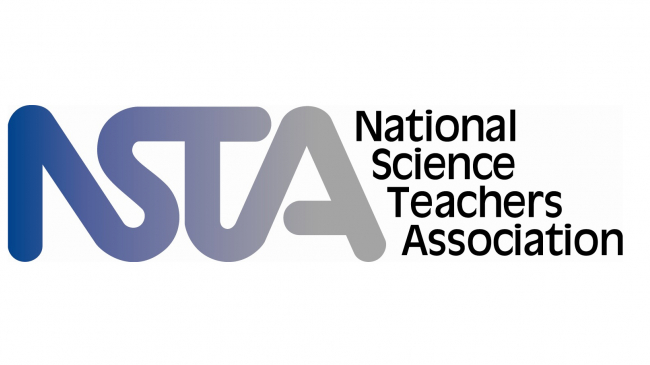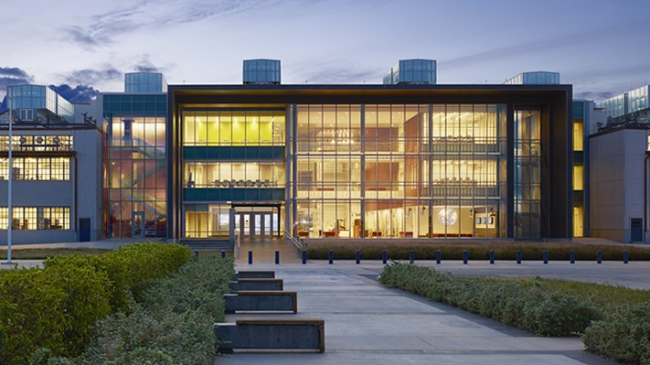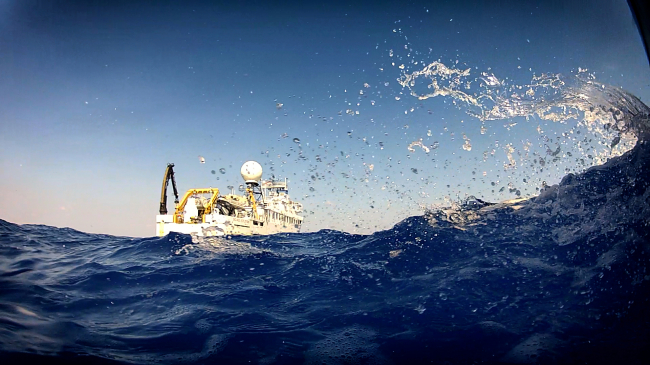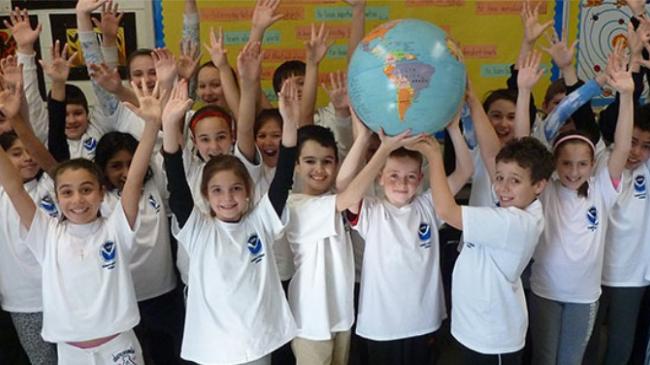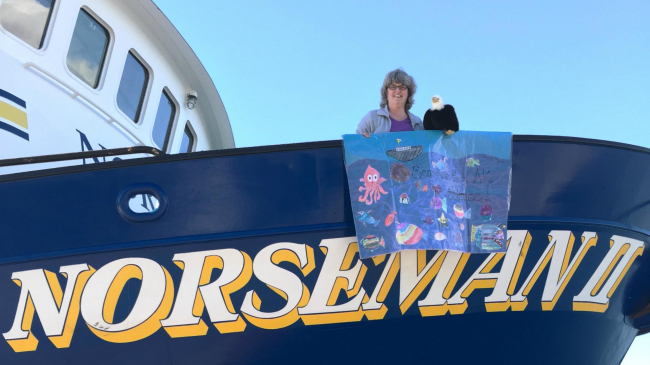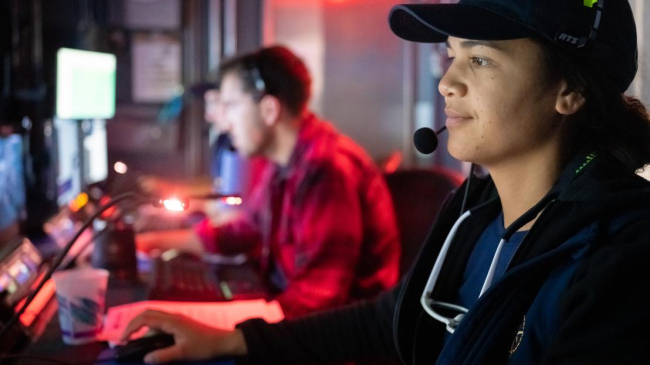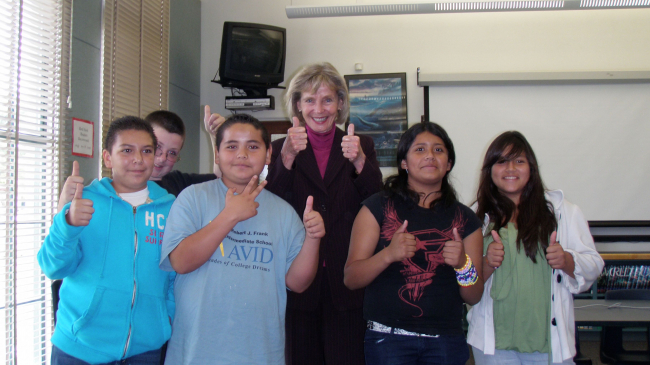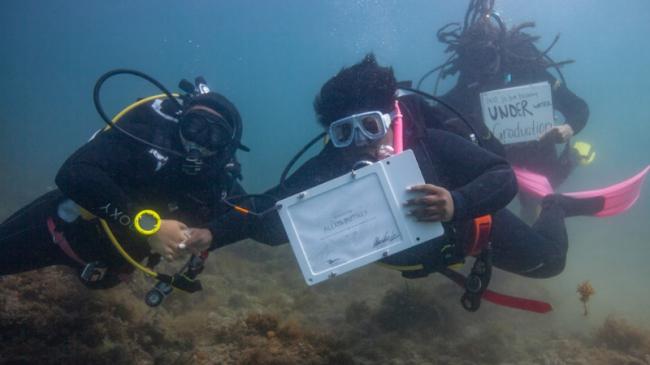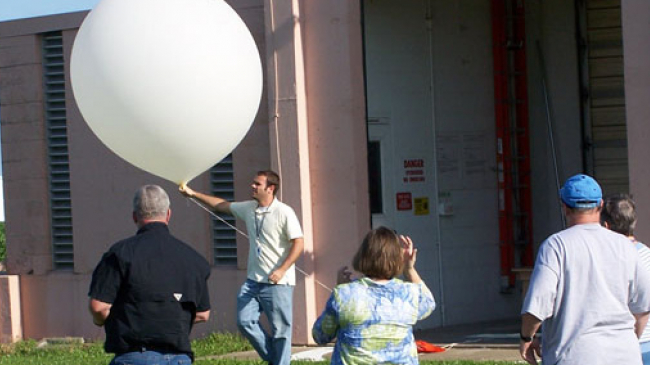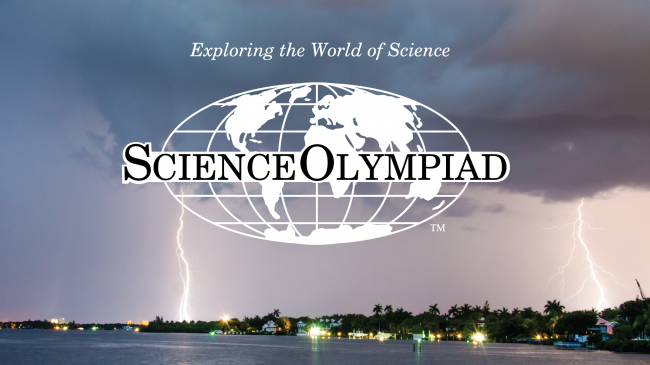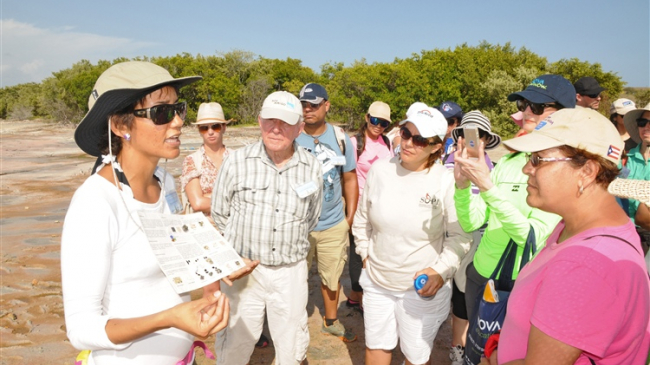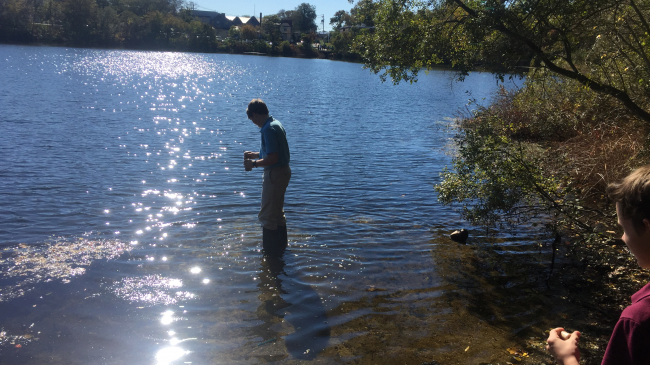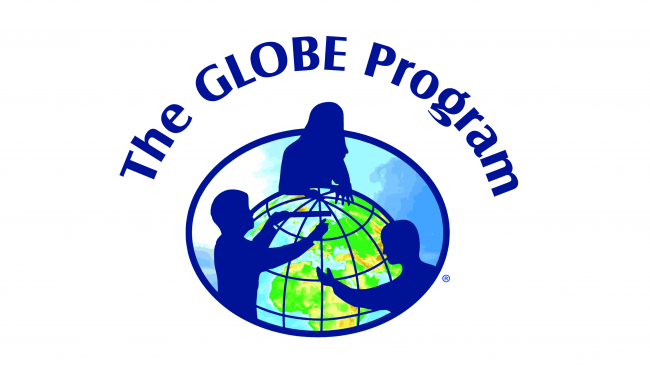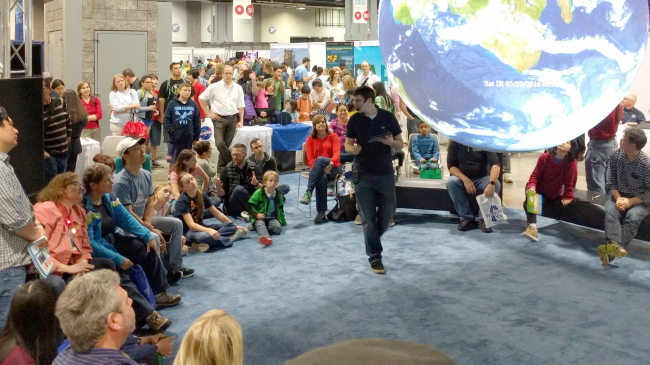Find information about educational opportunities that are available to educators through NOAA.
The ACLIPSE course engages grade 6–12 teachers and teacher candidates in climate science/change activities using authentic data. ACLIPSE uses climate science as the context for applying current research about teaching and learning aligned with the Framework for K–12 Science Education. Educators and their students also improve their skills for using and interpreting real- and near real-time data. ACLIPSE includes instructional materials developed with NOAA's financial and scientific support.
NOAA's B-WET program funds locally relevant, authentic experiential learning for K-12 audiences through Meaningful Watershed Educational Experiences (MWEEs). B-WET currently serves seven areas of the country: California, Chesapeake Bay, Gulf of Mexico, Hawaii, New England and the Pacific Northwest.
Teaching about climate and energy? Our NOAA partner, the award-winning Climate Literacy and Energy Awareness Network (CLEAN) collection contains over 800 educational resources that are free, peer-reviewed, NGSS aligned, easily searchable, and ready-to-use for teaching about climate and energy including activities, lab demonstrations, visualizations, and videos. CLEAN partners with climate scientists and educators to review educational resources and also provides pedagogical support for teaching climate and energy topics through background knowledge webpages, a professional development toolkit, webinars, and a professional learning community to help educators.
Take your teaching about climate and energy to the next level with the CLEAN Webinar Series! Register for upcoming webinars or watch recordings of past webinars.
The CELC Aquaculture Initiative is designed to connect NOAA resources and experts and aquarium educators so that they can better communicate aquaculture science and issues to the public. The webinar series is a quarterly event, where various aquaculture experts talk about a variety of issues, from how seafood helps with public health to the science of breeding corals or saving an endangered mollusc. Anyone is welcome to attend, but this program is especially for informal educators.
A 13-week distance-learning course on the atmospheric portion of the Earth system and its interaction with people using real-time data, text reading, activities, and online investigations. Course materials are included and 3 graduate credits are awarded upon completion of the course.
A 13-week distance-learning course on the fluid Earth system emphasizing the atmospheric, ocean, and hydrologic sciences using real-time data, text reading, activities, and online investigations. Course materials are included and 3 graduate credits are awarded upon completion of the course.
A 13-week distance-learning course that investigates the mass and energy flows associated with the global climate system and the related issues using real-time data, text reading, activities, and online investigations. Course materials are included and teachers receive 3 graduate credits upon completion of the course.
A variety of workshops offered throughout the school year and during the summer at the Dauphin Island Sea Lab in Alabama. Most workshops include free tuition, meals, and housing.
eePRO is an online platform for professional development run by the North American Association for Environmental Education (NAAEE). Join NOAA educators and thousands of other environmental educators who visit eePRO to post and explore resources, opportunities, events, and jobs.
This is a year-long internship funded by Georgia Sea Grant and located at the University of Georgia's Marine Education Center and Aquarium in Savannah, Georgia.
LiMPETS is an environmental monitoring and education program for students, educators, and volunteer groups throughout California. Approximately 6,000 teachers and students per year along the coast of California are involved with the collection of rocky intertidal and sandy beach data as part of the LiMPETS network. Join us — learn the process of science and help to protect our local marine ecosystems.
MARE offers a range of professional development for K-12 districts, schools, and teachers including workshops on inquiry-based science and ocean immersion experiences. Most workshops are offered at the Lawrence Hall of Science in Berkeley, California, and include instructional materials developed with NOAA's financial and scientific support.
The Meaningful Watershed Educational Experience (MWEE) is a learner-centered framework that focuses on investigations into local environmental issues and leads to informed action. The MWEE Practitioner Webinar Series is hosted by the Chesapeake Bay Program and the NOAA Chesapeake Bay Office to advance practice around delivering MWEEs.
MetEd is a free collection of hundreds of training modules intended for the geoscience community. The online modules cover a variety of topics and range from 30 minute lessons to entire university courses.
A variety of different site-based teacher workshops at National Estuarine Research Reserve System locations throughout the country.
NOAA employees and grantees offer a variety of workshops, presentations, exhibition hall booths, resources, and giveaways at the National Marine Educators Association (NMEA). NMEA brings together educators of both fresh and salt water in regional chapters and at an annual national conference. NMEA also publishes a quarterly magazine titled Current: The Journal of Marine Education.
Citizen science is a term that describes projects in which volunteers partner with scientists to answer real-world questions. These volunteers can work with scientists to identify research questions, collect and analyze data, interpret results, make new discoveries, develop technologies and applications, as well as solve complex problems. See a listing of opportunities within the National Marine Sanctuary System.
This webinar series provides formal and informal educators with educational and scientific expertise, resources and training to support ocean and climate literacy in the classroom.
The NOAA Office of National Marine Sanctuaries aims to provide teachers with resources and training to support ocean and climate literacy in America's classrooms. You will find a listing of workshops that will excite your students about science and technology.
The National Ocean Sciences Bowl, managed by The Consortium for Ocean Leadership, is a nationally recognized and highly acclaimed high school academic competition that provides a forum for talented students to test their knowledge of the marine sciences including biology, chemistry, physics, and geology. Teams consist of a coach and 4–5 students in grades 9–12.
NOAA employees and grantees offer a variety of workshops, presentations, exhibition hall booths, resources, and giveaways at the regional and national conferences.
You can request a tour for your students of the NOAA Daniel K. Inouye Regional Center in Honolulu, Hawaiʻi. The building is on a military base and so staff need at least two months advance notice for tours.
An essential component of NOAA Ocean Exploration’s mission is to enhance ocean science literacy and understanding of why it is important to explore our little-known ocean world. To help fulfill this mission, NOAA Ocean Exploration offers professional learning opportunities for educators to dive deeper into ocean science and exploration topics.
Educators joining NOAA Planet Stewards receive sustained professional development through an active online learning community and regional events, and support in the development and implementation of hands-on projects that conserve, restore, and protect human communities and natural resources. Eligible participants may apply for mini-grants, travel stipends, and participate in contests.
The Teacher at Sea program provides a unique environment for learning and teaching by sending teachers to sea aboard NOAA research and survey ships to work under the tutelage of scientists and crew.
NOAA employees and grantees offer a variety of workshops, presentations, exhibition hall booths, resources, and giveaways at the North American Association for Environmental Education (NAAEE) conference. NAAEE is a leader in promoting excellence in environmental education. Their activities include an annual conference, publications on effective practices, professional development and networking services, and advocating for environmental education.
The Science Communication Fellowship immerses formal and informal educators in the Nautilus Corps of Exploration as communicators for exploration and empowers them to bring the excitement of ocean exploration — specifically in the fields of science, technology, engineering, and mathematics (STEM) — to students and public audiences around the world. Fellows share accounts of ocean research, expedition operations, STEM careers, and daily life with audiences of all ages through live audio commentary on the Nautilus Live website and through outreach to classrooms and communities via ship-to-shore live interactions offsite link.
An Ocean Guardian School makes a commitment to the protection and conservation of its local watersheds, the world’s ocean, and special ocean areas. The school makes this commitment by proposing and then implementing a school or community based conservation project. Grants range from $1,000 - $4,000 per school.
The Ocean Odyssey Grants, supported by NOAA Ocean Exploration and the National Marine Sanctuary Foundation, are investments in projects and partners that are leading efforts to increase inclusion in and/or access to science, technology, engineering, and math (STEM) education and workforce development opportunities for diverse youth in middle school, high school, undergraduate, and/or community college to learn about ocean science and/or exploration. have a long history of working collaboratively to support ocean education. The Foundation anticipates funding 12-15 projects with awards between $5,000 - $10,000. Funding is available for schools, districts, institutions of higher education, nonprofit organizations, for profit institutions, local, and state entities from the United States, territories, and Freely Associated States supporting diverse students in these regions.
This workshop is conducted online and in person each July at the U.S. National Weather Service Training Center in Kansas City, Missouri. The course introduces educators to weather sensing, analyzing, and forecasting and includes lectures, hands-on laboratory exercises, and field trips.
This workshop is conducted online and in person each July in Chestertown, Maryland. The course introduces educators to the foundations of physical oceanography and includes lectures, hands-on laboratory exercises, and field trips. Course materials are included and teachers receive 3 graduate credits upon completion of all course requirements.
Science Olympiad is an academic competition for students in grades K-12. NOAA has teamed up with Science Olympiad to provide in-depth and up-to-date resources for several events. NOAA employees also assist in supervising events at competitions and offering workshops for coaches.
There are 34 Sea Grant programs located throughout the nation that offer programs for educators and students. Use the network site to locate your nearest sea grant program and visit their individual education websites to find opportunities near you.
Multi-day research and field-based teacher training to improve understanding of the estuary environment and promote student stewardship of estuaries and watersheds.
The Global Learning and Observations to Benefit the Environment (GLOBE) program is a worldwide hands-on, primary and secondary school-based science and education program. To receive training on implementing GLOBE protocols in your classroom, GLOBE offers in-person workshops or online E-Teacher certification.
The USA Science and Engineering Festival consists of one large event in Washington, D.C., and several smaller events throughout the country. NOAA has a booth at the main festival, which is held every two years in the spring. The festival hosts hundreds of exhibitors, hands-on activities, performers, and speakers to inspire the next generation of scientists and engineers.
NOAA Boulder scientists can talk to your group, wherever you are! Fill out the request form and the NOAA Boulder Outreach Team will contact you. Our scientists are working hard on their research, but they still love to talk to groups about what they are learning and working as a scientist. Virtual Talks will be about 30 minutes long, with another 10 minutes for Q&A.
NOAA Boulder will do their best to fulfill requests, but may not be able to fulfill all. They require at least four to six weeks advance notice for your best chance at a speaker.



